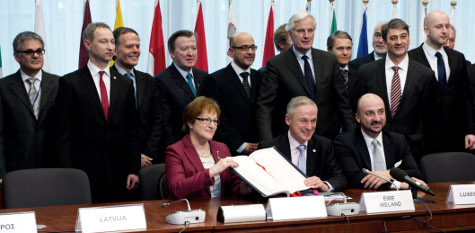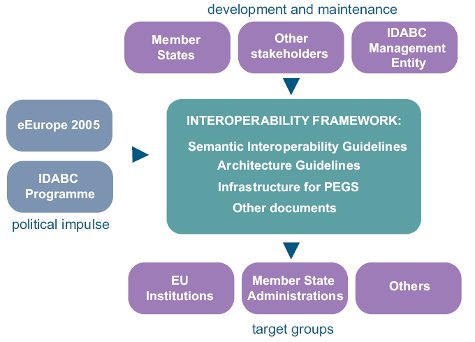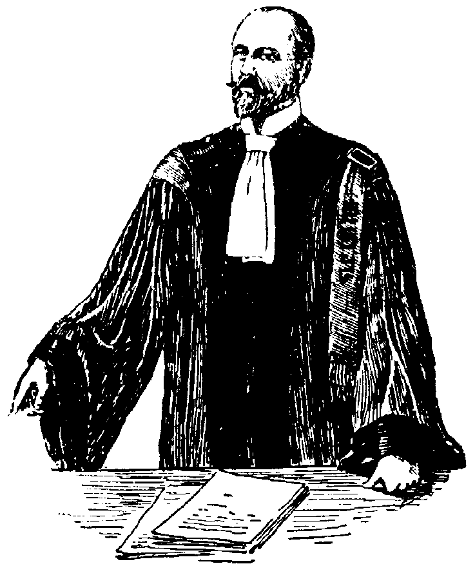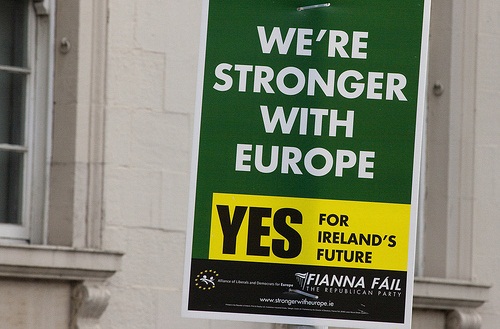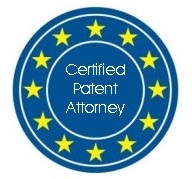 Inspired by this discussion of our recent posting on the latest draft UPC rules of procedure it appears to be high time to have a closer look into Article 48 UPC and related Rule 286 RoP in order to possibly figure out the legislator’s idea of representation rights.
Inspired by this discussion of our recent posting on the latest draft UPC rules of procedure it appears to be high time to have a closer look into Article 48 UPC and related Rule 286 RoP in order to possibly figure out the legislator’s idea of representation rights.
As European and German patent attorneys we still remember the recommendation of the 2006 Venice Patent Judges Symposium according to which only “attorneys-at-law who are fully entitled to represent parties in ordinary civil proceedings in the courts of first instance of the convention states” should be authorised to represent cases before the UPC (see Venice II resolution, page 11, item 5). Later, at the peak of the lobbying battle for representation rights (see e.g. here and here) also the European Parliament’s JURI Committee and its influential rapporteur Klaus-Peter Lehne, an attorney-at-law and partner of international law firm Taylor Wessing, urged it is of “utmost importance” that
the parties should be represented only by lawyers authorised to practise before a court of a Contracting Member State; the representatives of the parties might be assisted by patent attorneys who should be allowed to speak at hearings before the Court [2011/2176 (INI)]
Different voices came from industry organisations, patent practitioners and academia, who raised for good reasons (see here, here, here) that European Patent Attorneys should be authorised to represent their clients before the UPC as well.
Before this background, Article 48 UPCA can be understood as an acceptable compromise:
(1) Parties shall be represented by lawyers authorised to practise before a court of a Contracting Member State.
(2) Parties may alternatively be represented by European Patent Attorneys who are entitled to act as professional representatives before the European Patent Office pursuant to Article 134 of the EPC and who have appropriate qualifications such as a European Patent Litigation Certificate.
(3) The requirements for qualifications pursuant to paragraph 2 shall be established by the Administrative Committee. A list of European Patent Attorneys entitled to represent parties before the Court shall be kept by the Registrar.
(4) … (7)
According to this provision, basically three groups of professionals are authorised to independently represent cases before the UPC, namely
- Lawyers,
- European Patent Attorneys having the European Patent Litigation Certificate, and
- European Patent Attorneys having an appropriate qualification.
Today, on February 19, 2013 at 1415h, the signing ceremony of the International Agreement on the establishment of the Unified Patent Court will take has taken place in the Justus Lipsius building of the Council of the European Union located in Brussels.
The event can be followed by video streaming:
http://video.consilium.europa.eu
As far as we know, 22 countries are today going to sign the Agreement (in brackets: year of accession to EU or predecessor organisations):
- Austria (1995),
- Belgium (1952),
- Cyprus (2004),
- Denmark (1973),
- Estonia (2004),
- Finland (1995),
- France (1952),
- Germany (1952),
- Greece (1981),
- Hungary (2004),
- Ireland (1973),
- Italy (1952),
- Latvia (2004),
- Lithuania (2004),
- Luxembourg (1952),
- Malta (2004),
- Netherlands (1952),
- Portugal (1986),
- Romania (2007),
- Slovakia (2004),
- Sweden (1995), and
- United Kingdom (1973)
According to Ian Wishart of Europeanvoice.com,
Bulgaria (2007),(see UPDATE below)the Czech Republic (2004), (see UPDATE below)- Poland (2004) and
Slovenia (2004)(see UPDATE below)
have indicated that they would not be in a position to sign the agreement next week because they still had technical issues to resolve. They are expected to sign at a later date.
Continue reading »
While nowadays most of the initial filings with the European Patent Office (EPO) or with the Office for Harmonisation in the Internal Market (OHIM) are made via electronic means, a lot of other communication between the respective Office and the applicants or their representatives usually still is dealt with by paper-based means. For example, the EPO sends an awful amount of registered letters every day, and the OHIM mainly uses telefax for sending out Official communications and for receiving responses thereto.
In this context it should be noted that the new Unified Patent Court will be the first major European institution in the field of IP which adopts a policy solely allowing electronic communication, effectively banning all paper-based backdoors. Article 44 of the Agreement on a Unified Patent Court stipulates:
ARTICLE 44
Electronic procedures
The Court shall make best use of electronic procedures, such as the electronic filing of submissions of the parties and stating of evidence in electronic form, as well as video conferencing, in accordance with the Rules of Procedure.
In the 14th Preliminary set of provisions for the Rules of procedure of the Unified Patent Court this matter is picked up by Rule 4, reading as follows:
Rule 4 – Lodging of documents
Written pleadings and other documents shall be lodged at the Registry in electronic form. Parties shall make use of the offcial forms available on-line.
“Written pleadings and other documents shall be lodged at the Registry in electronic form” – no exceptions allowed. At first we note that the internal competence for dealing with filings appears to lie with the Registry of the Court. As a second point, there will be “offcial forms” for each and every potential filing which must be usted and, after being filled in, filed electronically.
Moreover, throughout the full text of the Draft Rules of Procedure there are 25 mentions of “electronic address” of the Court and/or parties involved.
Neither those above-mentioned “official forms” nor the “electronic addresses” are explained in any technical detail within the Draft of the Rules of Procedure.
Closely related to these on-line issues are telephone and video conferences as indicated in Rule 105. There is no Rule defining applicable technologies for such purposes.
Continue reading »
A few days ago, the 14th Draft of the preliminary set of provisions for the Rules of procedure of the Unified Patent Court dated January 31st, 2013, has appeared on the Internet. This means that now all main components of the new EU Unitary Patent & Unified Patent Court system are either final or at least available in a quite recent draft version. The text comprises 382 Rules and covers a wide range of procedural law to be applied in cases before the new court, including:
- Application and interpretation of the Rules of Procedure,
- Procedures before the Court of First Instance,
- Evidence,
- Provisional Measures,
- Procedures before the Court of Appeal,
- General provisions,
- Fees and legal aid.
This is just a brief note that the final text of the Agreement on a Unified Patent Court has just been published today. It is available in Document 16351/12 via the Document server of the Council of the European Union.
Hard-coded in Article 84 (1) is a provision setting the date on which the Agreement open for signature by any Member State to
February 19, 2013.
The Regulation (EU) No 1257/2012 of the European Parliament and of the Council December 17, 2012 implementing enhanced cooperation in the area of the creation of unitary patent protection has already been published in the Official Journal of the EU Number L 361/1 dated December 31, 2012.
The Regulation (EU) No 1260/2012 of the European Parliament and of the Council December 17, 2012 implementing enhanced cooperation in the area of the creation of unitary patent protection with regard to the applicable translation arrangements has already been published in the Official Journal of the EU Number L 361/89 dated December 31, 2012.
The short answer is … we don’t know yet!
A slightly longer answer is: It will, in the end, depend on the CJEU’s own interpretation of Article 5 of the Unitary Patent Protection Regulation (UPPR) and its understanding of the nature of the Unitary Patent Court Agreement (UPCR).
And a straightforward answer may be: Only very rarely, if at all, because of three reasons:
- The CJEU is not a regular third instance above the two instances of the Unified Patent Court.
- The centralised structure of the Unified Patent Court – involving a Central Division in the first instance and a sole Court of Appeal as the second instance – will largely ensure uniform interpretation of substantive patent law anyway.
- As substantive patent law is largely harmonised in Europe already and thus falls under the acte-clair-doctrine, there are only very limited substantive patent law issues left that are in risk of being interpreted differently in different countries (or by different local/regional UPC divisions) and would thus need to be decided by a preliminary ruling according to Art 267 TFEU.
The more detailed answer. While all this may or may not be true, it still makes sense to (again) look closer into Article 5 UPPR, which has been introduced as Article 5a into the draft Regulation on the EU Council meeting of 28/29 June 2012 in exchange of former Articles 6 to 8 draftUPPR that caused so much headaches to (parts of) the profession and industry (see e.g. here and here), especially in the UK (see here). The removed UPPR articles have been introduced into the UPCA as new Articles 14f to 14i. New Article 5 UPPR and its crucial § 3 reads:
Article 5 (Uniform protection)
1. The European patent with unitary effect shall confer on its proprietor the right to prevent any third party from committing acts against which that patent provides protection throughout the territories of the participating Member States in which it has unitary effect, subject to applicable limitations.
2. The scope of that right and its limitations shall be uniform in all participating Member States in which the patent has unitary effect.
3. The acts against which the patent provides protection referred to in paragraph 1 and the applicable limitations shall be those defined by the law applied to European patents with unitary effect in the participating Member State whose national law is applicable to the European patent with unitary effect as an object of property in accordance with Article 7.
4. [...]
But what does that mean?
As recently reported on this blog, the Unitary Patent Project of the European Union has been driven some big steps forward during December last year. The crucial dates were:
- 10 Dec 2012: The European Council endorses the EU Unitary Patent Package.
- 11 Dec 2012: The Advocate General of the CJEU hands down his opinion to dismiss the appeals of Spain (C-274/11) and Italy (IC-295/11) against enhanced cooperation in the field of unitary patent protection.
- 11 Dec 2012: The European Parliament approves the EU Unitary Patent Package.
- 17 Dec 2012: The European Council approves the EU Unitary Patent Package.
The texts finally adopted and approved by the competent EU institutions are the following:
- Proposal for a regulation implementing enhanced cooperation in the area of the creation of unitary patent protection, Regulation EU 1257/2012 (cf. consolidated text of 17/12/12 (PE-CONS 72/1/11); texts adopted on 11/12/12; cf decision-making monitor and procedure file),
- Proposal for a regulation implementing enhanced cooperation in the area of the creation of unitary patent protection with regard to the applicable translation arrangements, Regulation EU 1260/2012 (cf. consolidated text of 12/12/12 (18855/2/11 REV 2); texts adopted on 11/12/12; cf. decision-making monitor and procedure file),
- Resolution on jurisdictional system for patent disputes (cf. latest draft agreement of 14/11/12; texts adopted on 11/12/12; cf. procedure file).
While the political class is celebrating its ultimate success (e.g. Commissioner Michel Barnier, the Council Presidency, the EU Parliament, and the EPO with its President Benoît Battistelli), the political driving forces predict (and expect) even more ambitious progress on the final meters of implementing the new post-grant patent infrastructure in (some parts of) Europe:
- 18 Feb 2013 – Signature of the UPC Agreement and start of the ratification process (UPC will enter into force upon 13 ratifications, including mandatory ratifications in UK, France and Germany, cf. Art. 59 UPC Agrmnt),
- 01 Nov 2013 – Full ratification of UPC Agreement expected,
- 01 Apr 2014 – Issuance of first unitary patents by EPO and Unified Patent Court ready to receive first cases.
The project, however, is not at all cut and dried and there certainly is no automatism leading to its implementation within the 25 EU member states that originally supported enhanced cooperation. In fact, there are more challenges ahead than one may expect, especially with respect to the national ratification processes, which are required as the UPC Agreement, as an international treaty, will transfer statutory legal rights (i.e. national patent jurisdiction) to the European level.
While in the European Parliament the plenary debate on the Unitary Patent Package is going on, Mr Yves Bot, Attorney General in charge of joint cases C‑274/11 and C‑295/11 pending before the Court of Justice of the European Union, has delivered his opinion: In Italian and a few not-so-common languages. However, Google might be your friend in such situations:
IV – Conclusion
163. In the light of all the foregoing considerations, I propose that the Court should:
1) dismiss the appeal;
2) order the Kingdom of Spain (Case C-274/11) and the Italian Republic (Case C-295/11) to take charge of their own costs and the Council of the European Union and the interveners to bear their own costs .
Just to remind you: Both cases have been filed by Italy and Spain, respectively, in order to challenge the decision of the EU Council to allow the instrument of enhanced co-operation provided by the Lisbon Treaty (under certain conditions disputed in the lawsuit). But Mr Bot’s Opinion is not necessarily the last word on that matter: First, the Court is free to depart from Mr Bot’s Opinion, second, at some later point in time a case might be filed allowing CJEU to have their say as to whether or not the Unitary Patent package as debated in the Parliament just this minute is compatible with EU treaties or not.
[UPDATE 2012-12-11 11:05] Meanwhile also translations in many other languages are available on-line, e.g. in English
[UPDATE 2012-12-11 13:25] Just an hour or so ago, the European Parliament has approved the Unitary Patent package:
The Rapkay report was approved by 484 votes to 164 with 35 abstentions.
The Baldassarre resolution was approved by 481 votes to 152 with 49 abstentions.
The Lehne report was approved by 483 votes to 161, with 38 abstentions.
Procedures: Co-decision (Ordinary Legislative Procedure) 1st reading (unitary patent), Consultation (language regime), non-legislative resolution (unified patent court)
Press conference: Tuesday, 11 December at 15:00
There is a domestic debate in the United Kingdom which currently is getting increasingly more and more fierce: Could this country, after a bitter row between supporters of the EU membership, on the one hand, and their adversaries, furious eurosceptics, on the other hand, eventually push the panic switch to trigger the ejector seat, thereby cancelling all the treaties governing their membership in this club? The recent issue of The Economist even brings this matter even on the front page. I myself, being a German citizen, tend to consider any exit of the United Kingdom from the EU as a regrettable and detrimental step harmful both for the prospects of the Kingdom as well as for the remaining EU Member States. It reduces the weight of both parties, in terms of political influence as well as concerning prospects of economic well-being. And, on the long term, European integration was and still is the central political tool for keeping peace in Europe despite a violent past.
In his time, facing a deadly threat by Nazi Germany, Churchill was right when uttering
“For 400 years the British policy has been to oppose the strongest power in Europe by uniting all the lesser powers against it. Sometimes it’s Spain, sometimes it’s Germany, sometimes France.” (Churchill: The Wilderness Years)
Those amongst the readers of this blog who have consumed episodes of the Yes Minister sitcom in the 1980s might have laughed at Bernhard Wooley’s joke stretching the scope of this piece of Churchill’s wisdom to be sort of a first principle of the UK membership in the EU. But can this really still be a valid device for today’s politics? I’m in doubt about such assumption.
Some eurosceptics might perhaps prefer to dream of a revival of that sort of special relationship between the United States and the United Kingdom which had been forged, again under the horizon of the agression emerging from Nazi Germany, between key allies in the World War II. However, as early as in 1952 Harold Macmillan (at that time Housing Minister) noted down in his political diary:
17. January
… The Cabinet today was interesting. Eden gave us his general impressions of the American visit. He had been forcibly struck – indeed horrified – at the way we are treated by the Americans today. They are polite, listen to what we have to say; but make (on most issues) their own decisions. Till we can recover our financial and economic independence, this is bound to continue … (Catterall, Peter [Ed.]: The Macmillan Diaries – The Cabinet Years, 1950-1957, p. 133. London: Macmillan, 2003).
Would anyone dare to seriously argue that this substantially has changed meanwhile? That sort of financial and economic independence Eden and Macmillan have talked about hardly will emerge from any EU exit of the United Kingdom. The Economist summarises the prospects of Britain walking away entirely as follows:
The most likely outcome would be that Britain would find itself as a scratchy outsider with somewhat limited access to the single market, almost no influence and few friends. And one certainty: that having once departed, it would be all but impossible to get back in again.
And, there is another big issue looming in UK domestic politics: A referendum on independence of Scotland might split the Kingdom into two states, Scotland most likely staying within the EU.
Well, it all will depend on the British people who need to make up their minds.
If, in the most extreme case, England, Wales, and Northern Ireland were bound to exit the EU completely – what would be (most likely) the consequences for the field of IP law?
- The European Patent Convention (EPC) is set up as an international treaty completely independent from the European Union. Hence, as far as EPC basic membership rights are concerned there should be no serious change of the present legal situation.
- Unitary Patent / Unified Patent Court: This new system, not even finalised yet, is open for EU Member States only. If any UK exit referendum results in a pro-exit vote before the UK have ratified the Unified Patent Court Agreement, the latter appears to be doomed because of it can enter into force only after ratification by the three largest patent filing nations. The United Kingdom is one of them. [Update: After exit of UK is complete and effective, UK does no longer count as Member State in Article 59 of the Agreement, and entry into force thereof depends on the three biggest filers of the remaining EU Member States.] The other way round, if the UK exit happens after the Agreement has entered into force, then there seem to exist insurmountable legal hurdles for the UK to remain party to the Agreement because of the Court of Justice of the EU explicitly has ruled that this new Court must be open only for EU Member States. Moreover, under political considerations it appears to be hardly possible that one of the divisions of the central chamber still remains located in London. UK attorneys will not / no longer be allowed to represent their clients before the Unified Patent Court. If Scotland manages to gain independence while maintaining EU membership status, the effects of the exit will only affect England, Wales, and Northern Ireland.
- Directive 2008/95/EC of 22 October 2008 to approximate the laws of the Member States relating to trade marks would no longer be binding for the UK. If Scotland manages to gain independence while maintaining EU membership status, the effects of the exit will only affect England, Wales, and Northern Ireland.
- EU Community Trade Marks / EU Community Registered Designs: As both Regulations are secondary EU Law, any withdrawal of the United Kingdom will cause that protection is no longer extended to the territory thereof. There will be a sensible debate as to whether or not protection for existing EU Community Trade Marks / existing EU Community Registered Designs registered prior to the exit on the territory of the UK can be maintained further. Probably UK attorneys might be stripped of their right to represent their clients before OHIM. If Scotland manages to gain independence while maintaining EU membership status, the effects of the exit will only affect England, Wales, and Northern Ireland.
- As soon as UK is no longer part of the EU internal market, several rules governing the exhaustion of IP rights will probably change as far as UK territory is affected. Again, if Scotland manages to gain independence while maintaining EU membership status, the effects of the exit will only affect England, Wales, and Northern Ireland.
A precise walk through the acquis communautaire surely will uncover other but minor legal changes, e.g. concerning Directive 98/44/EC of 6 July 1998 on the legal protection of biotechnological inventions, or concerning Council Regulation (EC) No 44/2001 of 22 December 2000 on jurisdiction and the recognition and enforcement of judgments in civil and commercial matters (Brussels I).
Time will tell.
(Photo released to the public domain by Man vyi on Wikimedia)
A look into the Draft Agenda for the plenary session of the European Parliament on Tuesday, 11 December 2012 reveals that the discussion and vote on the Unitary Patent Package is due:
- #146 — Creation of unitary patent protection
Report: Bernhard Rapkay (A7-0001/2012)
Report on the proposal for a regulation of the European Parliament and of the Council implementing enhanced cooperation in the area of the creation of unitary patent protection
[COM(2011)0215 - C7-0099/2011 - 2011/0093(COD)]
Committee on Legal Affairs- #147 — Unitary patent protection
Report: Raffaele Baldassarre (A7-0002/2012)
Report on the proposal for a Council Regulation implementing enhanced cooperation in the area of the creation of unitary patent protection with regard to the applicable translation arrangements
[COM(2011)0216 - C7-0145/2011 - 2011/0094(CNS)]
Committee on Legal Affairs- #148 — Jurisdictional system for patent disputes
Report: Klaus-Heiner Lehne (A7-0009/2012)
Report on jurisdictional system for patent disputes
[2011/2176(INI)]
Committee on Legal Affairs
The final list of amendments tabled is available here. It looks as if this amendment #70 with some clarifications might prevail.
Also on December 11, 2012, at the Court of Justice of the EU in Luxembourg the Attorney General who is in charge of joined cases C-274/11 C-295/11 (Annulment of Council Decision 2011/167/EU of 10 March 2011 authorising enhanced cooperation in the area of the creation of unitary patent protection (OJ 2011 L 76, p. 53) Misuse of powers – Failure to respect the judicial system of the European Union) will deliver his or her Opinion. The Court might later well derive from that but the Opinion will, as usual, give a clue as to whether or not Spain and Italy might have some chance to spoil the project of enhanced co-operation in the field of patents at last.
The k/s/n/h::law blog
Some of the patent attorneys of the KSNH law firm have joined their efforts to research what is going on in the various branches of IP law and practice in order to keep themselves, their clients as well as interested circles of the public up to date. This blog is intended to present results of such efforts to a wider public.
Blog Archives
- November 2013 (2)
- October 2013 (1)
- September 2013 (1)
- August 2013 (2)
- July 2013 (3)
- June 2013 (5)
- March 2013 (5)
- February 2013 (4)
- January 2013 (5)
- December 2012 (5)
- November 2012 (5)
- July 2012 (5)
- June 2012 (8)
- May 2012 (5)
- April 2012 (3)
- March 2012 (4)
- February 2012 (5)
- January 2012 (6)
- December 2011 (12)
- November 2011 (9)
- October 2011 (9)
- September 2011 (4)
- August 2011 (7)
- July 2011 (4)
- June 2011 (1)
Blog Categories
- business methods (6)
- EPC (7)
- EPO (12)
- EU law (92)
- ACTA (8)
- CJEU (4)
- Comitology (1)
- competition law (2)
- Enforcement (6)
- EU Unified Patent Court (62)
- FTA India (1)
- TFEU (2)
- Trade Marks (5)
- European Patent Law (37)
- German Patent ACt (PatG) (1)
- German patent law (5)
- Germany (6)
- Pirate Party (3)
- International Patent Law (4)
- PCT (2)
- IP politics (10)
- licenses (2)
- Litigation (5)
- Patentability (7)
- Patents (12)
- Piratenpartei (2)
- Software inventions (10)
- Uncategorized (9)
- Unitary Patent (24)
- US Patent Law (4)
Comments
- kelle on Germany: Copyright Protection More Easily Available For Works Of “Applied Arts”
- Time Limits & Deadlines in Draft UPCA RoP: Counting The Days - KSNH Law - Intangible.Me on Wiki Edition of Agreement on Unified Patent Court Agreement (UPCA)
- Time Limits & Deadlines in Draft UPCA RoP: Counting The Days | ksnh::law on Wiki Edition of Agreement on Unified Patent Court Agreement (UPCA)
- Wiki Edition of Agreement on Unified Patent Cou... on Wiki Edition of Agreement on Unified Patent Court Agreement (UPCA)
- European Commission Takes Next Step Towards Legalising Software Patents in Europe | Techrights on EU Commission publishes Proposal of amendend Brussels I Regulation for ensuring Enforcement of UPC Judgements
Blogroll
- 12:01 Tuesday
- America-Israel Patent Law
- Anticipate This!
- AwakenIP
- BlawgIT
- BLOG@IPJUR.COM
- BP/G Radio Intellectual Property Podcast
- Broken Symmetry
- Class 46
- Director's Forum: David Kappos' Public Blog
- Gray on Claims
- I/P UPDATES
- IAM Magazine Blog
- Intellectual Property Intelligence Blog
- IP Asset Maximizer Blog
- IP CloseUp
- IP Dragon
- IP Watch
- IP Watchdog
- IPBIZ
- ipeg
- IPKat
- ITC 337 Law Blog
- Just a Patent Examiner
- K's Law
- MISSION INTANGIBLE
- Patent Baristas
- Patent Circle
- Patent Docs
- Patently Rubbish
- PatentlyO
- Patents Post-Grant
- Reexamination Alert
- SPICY IP
- Tangible IP
- The 271 Patent Blog
- The Intangible Economy
- THE INVENT BLOG®
- Think IP Strategy
- Tufty the Cat
- Visae Patentes
The KSNH blogging landscape


This blog and the German-language sister blog k/s/n/h::jur link to the two popular and privately run blogs IPJur und VisaePatentes and continue their work and mission with a widened scope and under the aegis of our IP law firm.
ksnhlaw on Twitter
- No public Twitter messages.
 KSNH::JUR Feed (german)
KSNH::JUR Feed (german)- Ist Verschlüsselung passé? September 6, 2013Auf verschiedenen Feldern beruflicher Praxis ist dafür zu sorgen, dass Kommunikation vertraulich bleibt. Die trifft beispielsweise für Ärzte zu, aber auch für Anwälte, darunter auch Patentanwälte. Einer der zahlreichen Aspekte, die in diesem Zusammenhang eine Rolle spielen, ist die Technik, um die Vertraulichkeit beruflicher Kommunikation sicherzustellen. Wa […]
- EU-Einheitspatent: Demonstrativer Optimismus und Zahlenmystik allerorten – Naivität oder politische Beeinflussung? June 26, 2013Nach mehreren vergeblichen Anläufen zur Schaffung eines EU-weiten Patentsystems wurde 1973 als Kompromiss das Europäische Patentübereinkommen unterzeichnet, welches unabhängig von der seinerzeit noch EWG genannten Europäischen Union System zur zentralisierten Patenterteilung mit nachgeordnetem Einspruchsverfahren durch das Europäische Patentamt schuf. Wie wi […]
- Moderne Zeiten oder: DPMA und Patentgericht streiten über die elektronische Akte April 25, 2013Bekanntlich hat das Deutsche Patent- und Markenamt (DPMA) im Jahre 2013 mit der rein technischen Fertigstellung der Einrichtungen zur elektronischen Akteneinsicht einen wichtigen Meilenstein seines Überganges von der Papierakte zur “elektronischen Akte” erreicht. Im DPMA werden aber bereits seit dem 01. Juni 2011 Patente, Gebrauchsmuster, Topografien und erg […]
- Gutachten zu Forschung, Innovation und technologischer Leistungsfähigkeit Deutschlands 2013 March 11, 2013Unter dem Datum vom 28. Februar 2013 ist die Bundestags-Drucksache 17/12611 veröffentlicht worden Sie trägt den Titel Unterrichtung durch die Bundesregierung - Gutachten zu Forschung, Innovation und technologischer Leistungsfähigkeit Deutschlands 2013. Die Bundesregierung legt dem Deutschen Bundestag seit dem Jahr 2008 […]
- 3D-Printing: Zum Filesharing von 3D-Modelldaten February 25, 2013In meiner kleinen zuvor angekündigten Reihe über rechtliche Aspekte des 3D Printing komme ich heute auf die Frage zu sprechen, ob die Hersteller von Gerätschaften es hinnehmen müssen, wenn Ersatztreile davon – vom Brillengestell über Smartphone-Gehäuseteile bis hin zu Rastenmähermotor-Abdeckungen – gescannt und die daraus […]
- Ist Verschlüsselung passé? September 6, 2013

